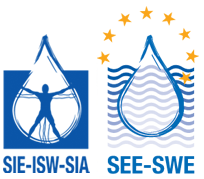This year, for the Stockholm World Water Week (SWWW2021), the International Secretariat for Water (ISW) and partners committed to promoting greater youth engagement in the water sector. The session “Multidimensional Role of Youth in Building Resilience” brought together a diverse audience to discuss this crucial issue.
About the session
Expertise comes in all shapes, ages, and backgrounds. From activists on the ground to high-level diplomats, building resilience is a multidimensional challenge that requires cooperation. There is evidence that youth involvement is vitally important to resilience, and this can be done in different ways and at different levels.
This session began by setting the stage with three concrete examples of how to involve youth. It allowed young people to express themselves in different roundtables while fostering intergenerational dialogue with senior experts. The roundtables were organized in 4 different languages to increase inclusiveness and participation. Participants had the opportunity to network and share their perspectives on topics ranging from climate change and urban disasters to community-based water resilience, peacebuilding, and access to water, sanitation, and hygiene in fragile or disaster-affected environments.
Within this very dynamic framework, we sought to gather the recommendations and demands of young people around the world to go beyond the water debate.
Themes and presentations
The session was divided into 3 different themes: 1) Water Security and Cooperation, 2) Nature-based Solution, and 3) WASH in a Fragile Context.
The 1st part of the session was dedicated to 3 Pecha Kucha (a presentation of 20 slides of 20 seconds each), one on each theme. Ahmed Alboraey (World Youth Parliament for Water) presented youth visions and actions for peacebuilding, cooperation, and water security from 6 different regions. Andrea Ferret (French Water Partnership) presented the principles and guidelines of Nature-Based Solutions (NBS) and ways for youth to promote NBS as a key resilient strategy – better education, advocacy, community outreach, etc. Yvonne Dube (YEP/Netherland Water Partnership) and Cedric Berthot (Solidarités International) presented the challenges for youth to contribute to WASH resilience in a fragile context.
The 2nd part of the session allowed participants to provide more examples of how youth are contributing to resilience building in each of the themes (peacebuilding, WASH, and NBS) and to identify what could help youth leaders have a more active and impactful role in building resilience.
Key Messages
The population is younger, and much of this younger population is exposed to water insecurity. As a result, more and more young people are willing to act and make changes in water governance. For example, many young entrepreneurs are trying to create start-ups in a fragile context and bring solutions to grassroots communities. They are also taking part in the global conversation on water management. More and more organizations are recognizing the importance of youth participation, which is positive.
However, there is still a long way to go from recognition to actual youth engagement. Lack of precedent makes it difficult for organizations to involve youth in all stages of water governance, as they often do not know how to proceed. Participants mentioned that organizations should be supported to develop better strategies for youth engagement.
On the other side of the spectrum, youth need to be better equipped to play their role. Better technical knowledge, skills, and experience are some of the needs. Improving education programs from an early age to include more knowledge about water and climate (NBS/WASH/Peacebuilding), developing vocational training in water and sanitation in fragile countries were identified as key actions to help youth involvement in the water sector. Finally, increased funding for actions was mentioned as essential for youth. Often not credible enough for donors, youth can play a key role in building resilience, whether by raising awareness, developing start-ups in their communities, or enabling youth in fragile regions to have a voice in governance mechanisms.
Conveners: International Secretariat for Water (ISW); Central Asia Youth 4 Water; French Water Partnership; Global Water Partnership; Swedish Water House; Swiss Water Partnership; United Nations Educational, Scientific and Cultural Organization; Water Youth Network; World Water Council; Young Expert Programmes/Netherland Water Partnership; Young Water Solutions; Youth Steering Committee of World Water Forum.

